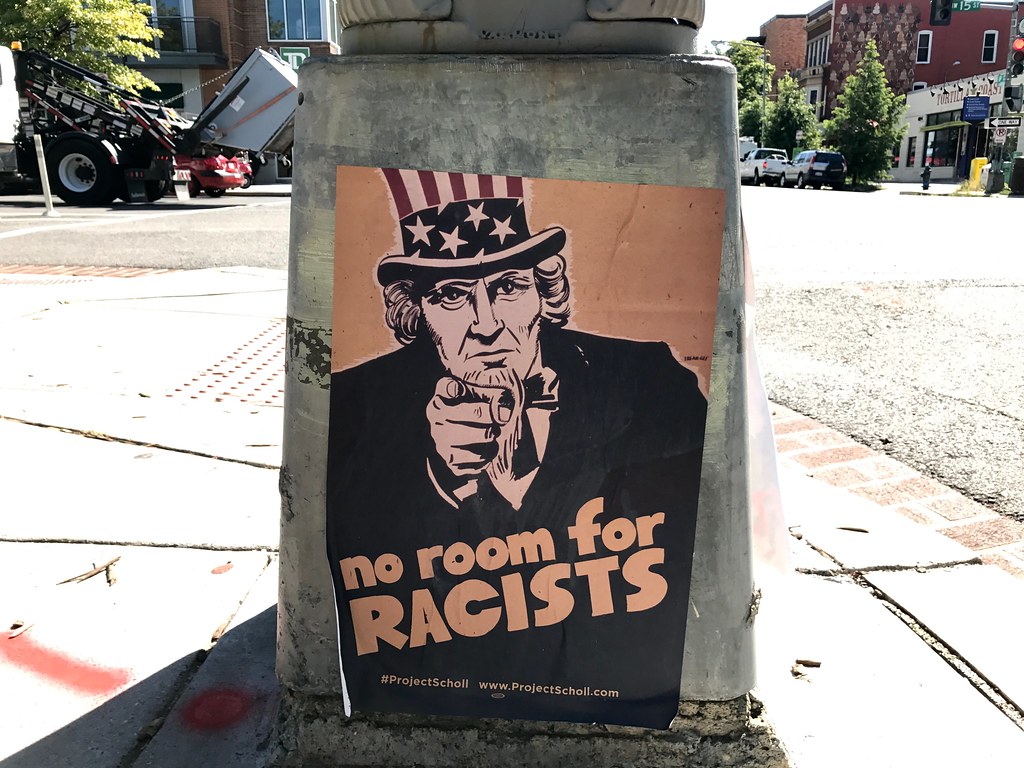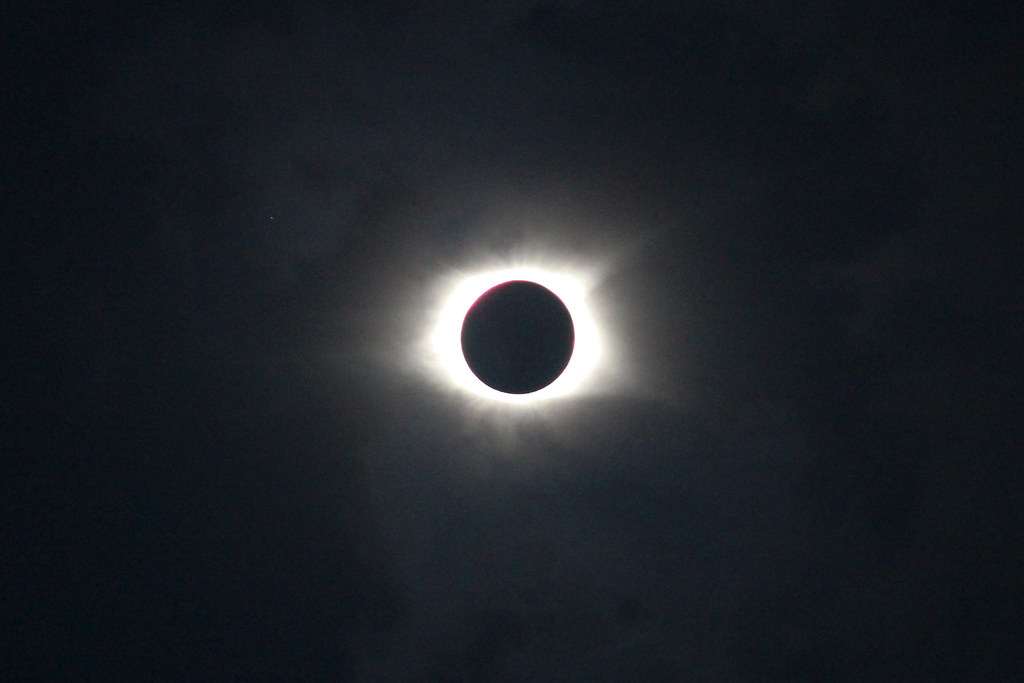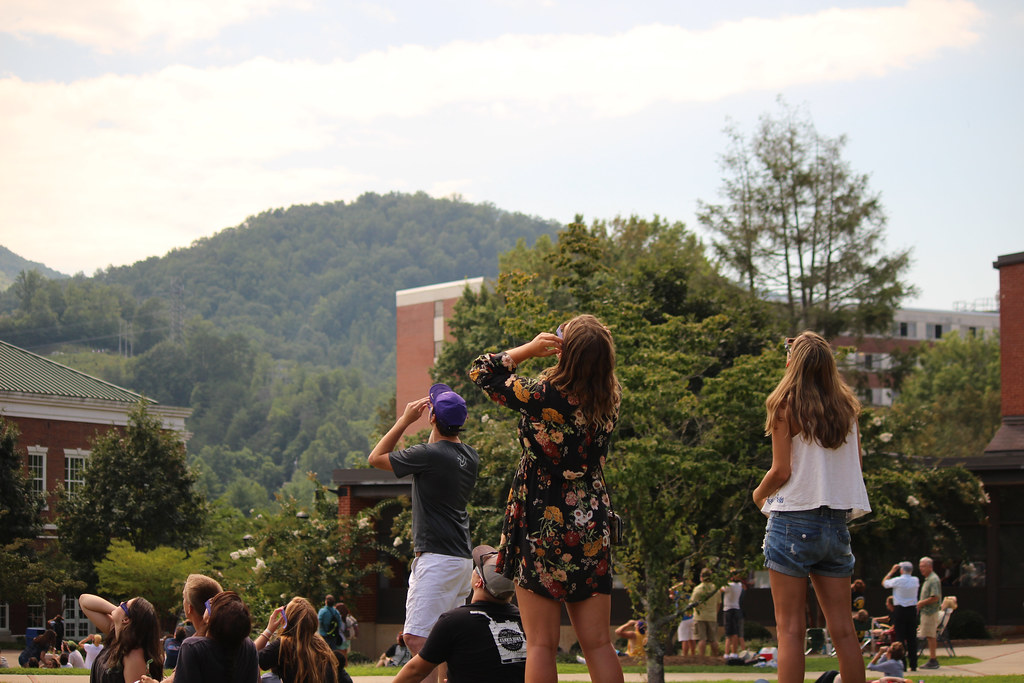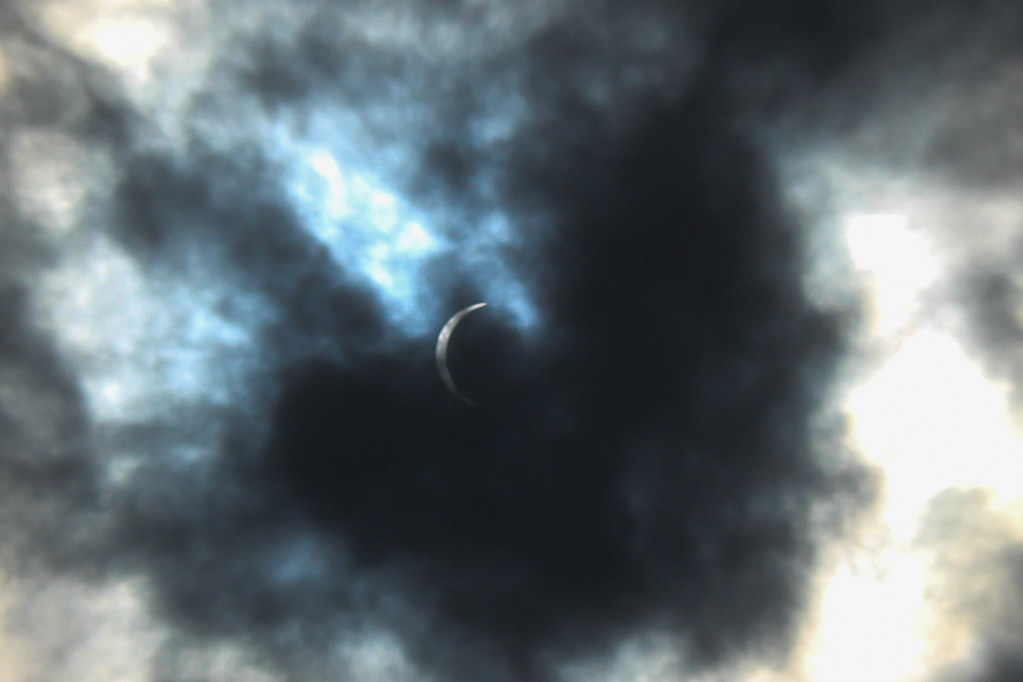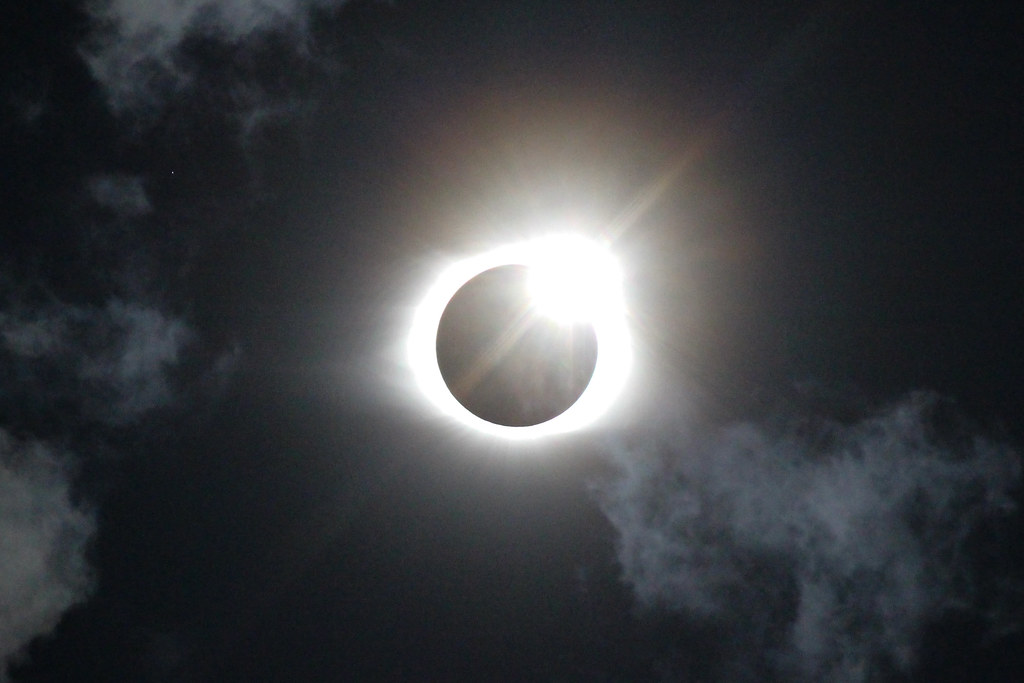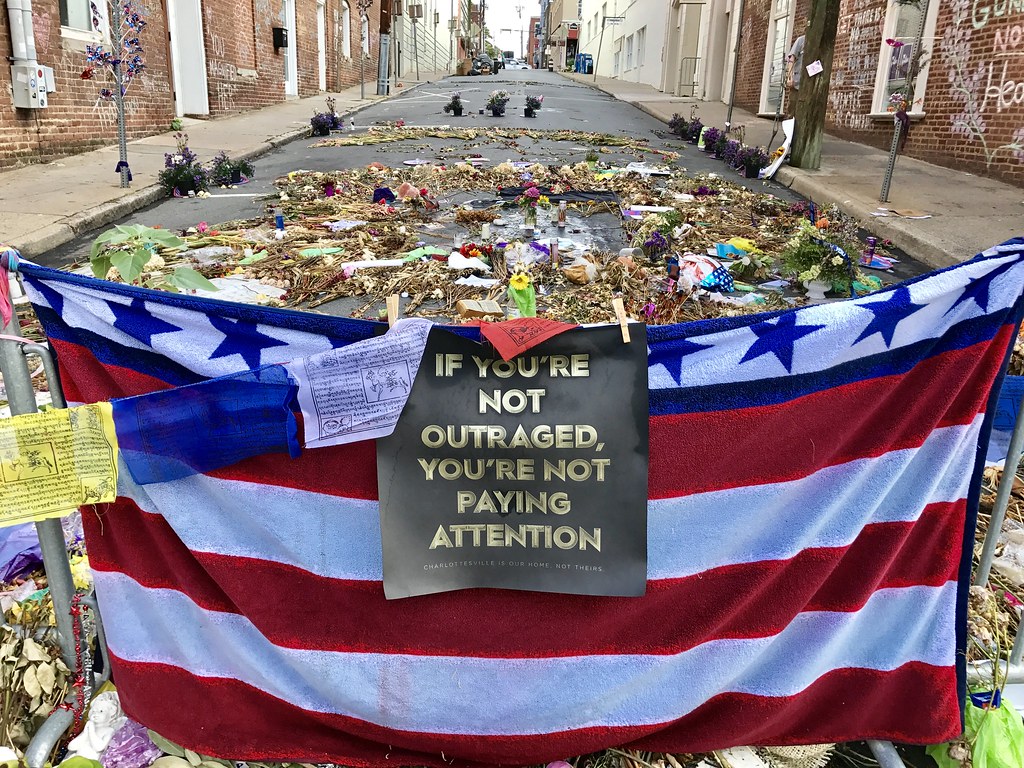
Despite blackening the sky, the eclipse was not a transcendent moment for America. Within minutes of totality exiting the United States, we went back to business as usual, with a big chunk of this nation denying any fact they find to be inconvenient as “fake news.”
On the way back from North Carolina, I decided to stop in Charlottesville to see the Heather Heyer memorial. This anti-racist demonstrator was mowed down by a driver on a side street in the downtown of this beautiful Virginia city.
It’s chilling. She died just steps from the city’s pedestrian mall, on a narrow lane offering no escape from a driver with his foot on the gas. It was a deliberate act of murder from an extremist who hunted down protesters.
Heather Heyer died – but for what?
This week, Hillary Clinton emerged, hawking yet another autobiography. And worse – she endorsed a laughable web site, Verrit, which Jack Shafer memorably described as looking like North Korean agitprop. What’s different about this new site? It provided verified factoids, with their own Verrit code, enabling you to live in a Clinton-approved media bubble without any exposure to the messy real world.
Patronizing, clumsy and conflicted – it’s everything you hate about Hillary in a single site. This kind of top-down lecturing from our political betters (you will read what we want you to read) is why Hillary and her sycophants lost an election that should’ve been easily won.
This kind of appeal to authority no longer works in America. Kurt Andersen documents America’s slide into unreason in How America Lost Its Mind, a voluminous Atlantic article that comprehensively name-checks nearly political and cultural movement from the past fifty years, everything from chemtrails to Uri Geller.
Why are Americans so crazy?
The short answer is because we’re Americans—because being American means we can believe anything we want; that our beliefs are equal or superior to anyone else’s, experts be damned.
Andersen puts the American tendency to create our own beliefs in a historical context. It’s been with us from the start, with invented Thanksgiving myths and tall tales about George Washington.
We also have a rich tradition of con-men, Donald Trump just being the latest in a line which extends back to L. Ron Hubbard, Joseph Smith and P.T. Barnum.
What Andersen misses is that Americans have good reason not to believe in American institutions. They’ve failed. American business has become parasitic, little more than Uber and AirBnB bros skimming value while employing only contractors. The American political class, as embodied by Hillary Clinton, has no core beliefs, other than getting elected (it’s her turn!). And our vast security state has given us endless war while failing to protect us from actual Nazis.
Posters reminiscent of World War II propaganda have emerged on the streets of DC. They are a call for resistance against Trumpism. The creator of this evocative art, Robert Russell, said:
In the the 1940s, America unified against an explicit and obvious enemy. In this case, the enemy is firmly entrenched in the White House. We’re inverting that message and saying the threat is right here, so look out.
But the posters do more than just target an incipient fascist. They remind us what Americans believe and what we’ve fought and died for – that we’re all created equal.
While Americans may hold their own idiosyncratic beliefs on the efficacy of vaccines or the possibility of alien life forms, this belief in democracy is a shared one and one that we must defend, whether we are Republican, Democrat or Independent.
